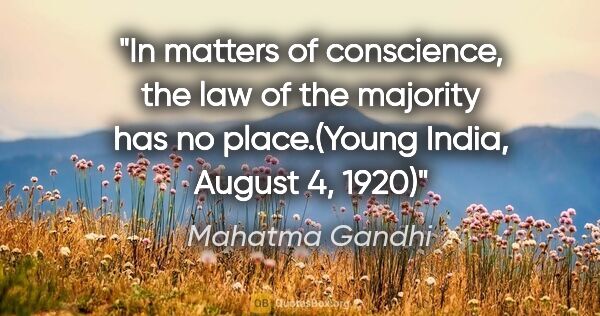Conscience Quotes (page 17)

All classes in proportion to their lack of travel and familiarity with foreign literature are bellicose, prejudiced against foreigners, fond of fighting as a cruel sport -- in short, dog-like in their notions of foreign policy."[Quoted in Socialism and Foreign Policy and War and the Liberal Conscience]
George Bernard Shaw
The whole function of the life of prayer is, then, to enlighten and strengthen our conscience so that it not only knows and perceives the outward, written precepts of the moral and divine laws, but above all lives God's law in concrete reality by perfect and continual union with His will.
Thomas Merton
But nowadays my heart is empty and the boxwood has lost its magic scent; yes, absolutely and entirely. The creature that I was no longer exists. When I speak to her she does not understand me; I think of her, already, as of some one I have known but who no longer has any connection with myself. This sort of death of part of oneself strikes terror into my heart. Life presents itself to me as a progressive series of annihilations, until in time one arrives at the general destruction of all...
Julien Green
Every subject's duty is the King's; but every subject's soul is his own. Therefore, should every soldier in the wars do as every sick man in his bed, wash every mote out of his conscience; and dying so, death is to him advantage; or not dying, the time was blessedly lost wherein such preparation was gained; and in him that escapes, it were no sin to think that, making God so free an offer, He let him outlive the day to see His greatness and to teach others how they should prepare.
William Shakespeare

Throughout history, religious leaders and other honorable men of conscience have always warned against this shaming confusion. They remind us that the poor have hearts, minds, humanity, and wisdom just like everyone else. When Hans Hansen sees a poor man he feels sorry for him. He would not necessarily assume that the man's a fool who's blown his chances or a drunk who's lost his will.
Orhan Pamuk


